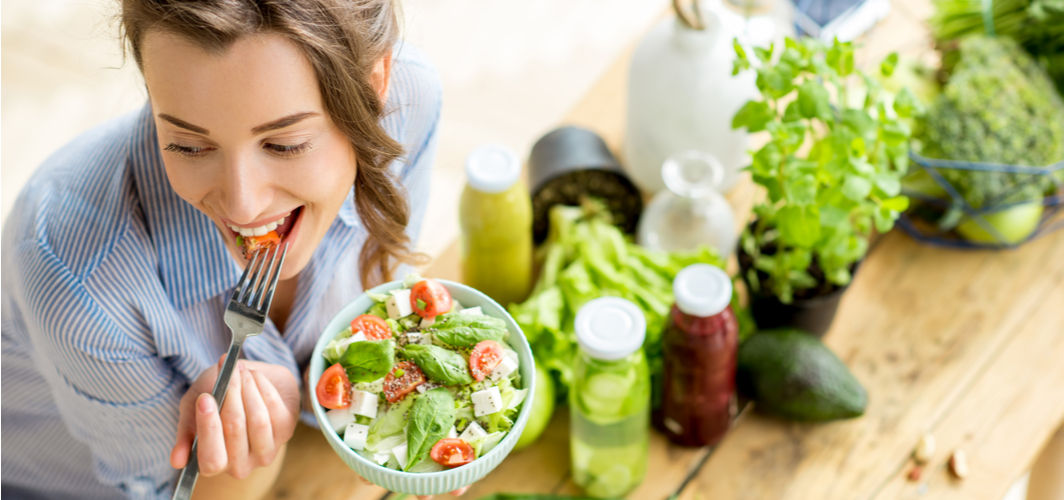Women's Wellness
The Foods Best Avoided or Limited During Pregnancy
4 min read
By Apollo 24/7, Published on - 17 March 2021, Updated on - 11 February 2025
Share this article
0
0 like

For a healthy pregnancy, the mother’s diet needs to be a well-balanced one with all essential food groups and nutrients. Pregnant women need to make sure that their diet is nutritious enough for the baby to grow and develop properly. Mothers are advised to consume a diet filled with carbohydrates, proteins, healthy fats, vitamins and minerals. However, there are some foods and beverages that should be avoided during pregnancy as they can have adverse effects on both the mother and baby.
1. Unpasteurized dairy products
Unpasteurised milk, also called raw milk, can contain various bacteria that pose serious health risks. Unpasteurized dairy products can carry infectious bacteria such as Campylobacter, Brucella and Listeria, which can result in spontaneous abortion, stillbirth, preterm delivery and fetal death.
Soft cheese made from unpasteurised milk such as brie, feta and blue cheese must be avoided as they have a white coating on top which allows more bacteria to grow. Pregnant women must check the label of any packed milk product for pasteurization before consuming.
2. Fish high in mercury
Seafood is considered a great source of good fats and proteins, and is healthy for the development of the brain and eyes of the baby. However, some fish are high in mercury and can be potentially dangerous for the baby’s lungs, kidneys and nervous system. As per the Food and Drug Administration, USA (FDA), pregnant women must avoid king mackerel, tuna, shark, sea bass, tilefish, swordfish and bluefish as they contain high levels of mercury. Fish with low mercury content include butterfish (pomfret), catfish (singhara), crab and herring (hilsa).
3. Raw or undercooked seafood
Pregnant women must avoid the consumption of raw seafood, which include sushi, sashimi, raw oysters, scallops and clams as they can be contaminated with infection-causing bacteria. Fish from local waters must be avoided as they can be contaminated with Polychlorinated biphenyls (PCBs), which can result in premature labour and low birth weight. Properly cooked seafood must be consumed by expecting mothers.
Recommended read :Ayurveda Diet for Pregnant Women
4. Undercooked meat and poultry
Raw or undercooked meat must be avoided during pregnancy as they can increase the risk of contracting various infections such as Listeria and toxoplasmosis.
Listeria is a foodborne disease, which can result in premature labour, miscarriage and even fetal death.
Toxoplasmosis is an infection caused due to the consumption of raw meat and can result in miscarriage or other complications in pregnant women.
Pregnant women must consume fully cooked meats and poultry, including cooked eggs to reduce the risk of getting infections.
5. Certain fruits
Fruits are considered extremely nutritious as they contain several micronutrients. Most fruits are healthy and safe for mothers to consume. However, some fruits are not advised during pregnancy, such as:
Papaya: Papaya is rich in vitamin A, C, folate and fibre but it is advised to not consume raw or semi-ripe papaya during pregnancy. Raw papaya contains latex that can induce premature uterine contractions, which can be dangerous for the baby. Ripe papaya can be consumed after consulting the doctor or dietician.
Pineapple: Studies reveal pineapple has an enzyme called bromelain which can soften the cervix and promote premature contractions, resulting in miscarriage. Pineapple can also induce stomach ache, nausea and diarrhoea which can cause extreme discomfort to the pregnant woman.
Grapes: Grapes can induce heat in the body, thus it is recommended to avoid consuming grapes especially during the first and third trimester. Grapes also contain resveratrol, which can promote a hormonal imbalance in the body of the pregnant woman.
6. Excess caffeine
Caffeine is present in coffee, tea and various other carbonated beverages. Consumption of excess caffeine during pregnancy can be harmful to the baby as it can cross the placenta and result in low birth weight. Since the exact effects of caffeine on the baby are not clear, less than 200 milligrams (mg) of caffeine a day can be consumed by a pregnant woman. Herbal teas must also be consumed after consulting a doctor.
Also read: Baby Position in Womb: Impact on Labor
7. Alcohol consumption
Consumption of alcohol during pregnancy has been associated with a higher risk of miscarriage, stillbirth and fetal alcohol syndrome (facial deformities and intellectual disability in the baby). Even a small amount of alcohol consumption during pregnancy can affect the growth and development of the fetus. There is no safe limit of alcohol during pregnancy, thus it is best to avoid it completely until the baby is born.
8. Processed foods
Processed foods such as fast foods, chips, pastries, pies etc. must be avoided in excess amounts during pregnancy as it adds extra weight to the expecting mother and contains too much salt in it. Obesity during pregnancy can result in gestational diabetes (high blood sugar during pregnancy), preeclampsia (life-threatening complication) and preterm birth of the baby.
Takeaway
Taking care of one’s health becomes extremely necessary during pregnancy. By avoiding the list of foods mentioned above, pregnant women can protect themselves from various conditions and illnesses, which can otherwise harm the baby. Pregnant women must ensure that fruits and vegetables are washed thoroughly before eating. A gynaecologist and dietician must be consulted for support with a healthy eating plan throughout the pregnancy and beyond.
Leave Comment
Recommended for you

Women's Wellness
5 Micronutrients Every Woman Must Add To Their Diet Immediately
Micronutrients such as iron, folate, and vitamin D are extremely important for women to maintain their health. Read to know more.

Women's Wellness
Do All Women Need Folic Acid Supplements?
Folate is required by the body for the formation of RBCs and WBCs in the bone marrow. It is also important for proper growth and development during pregnancy and infancy.

Women's Wellness
Witnessing Sudden Growth Of Facial Hair? These Can Be The Problems!
Have you noticed a sudden growth of dark, coarse hair on your face? Well, it could be hirsutism, a condition that leads to excessive growth of hair on the face, back, and chest of women. It’s advisable to see a doctor to know the causes behind facial hair growth.
Subscribe
Sign up for our free Health Library Daily Newsletter
Get doctor-approved health tips, news, and more.
Recommended for you

Women's Wellness
5 Micronutrients Every Woman Must Add To Their Diet Immediately
Micronutrients such as iron, folate, and vitamin D are extremely important for women to maintain their health. Read to know more.

Women's Wellness
Do All Women Need Folic Acid Supplements?
Folate is required by the body for the formation of RBCs and WBCs in the bone marrow. It is also important for proper growth and development during pregnancy and infancy.

Women's Wellness
Witnessing Sudden Growth Of Facial Hair? These Can Be The Problems!
Have you noticed a sudden growth of dark, coarse hair on your face? Well, it could be hirsutism, a condition that leads to excessive growth of hair on the face, back, and chest of women. It’s advisable to see a doctor to know the causes behind facial hair growth.